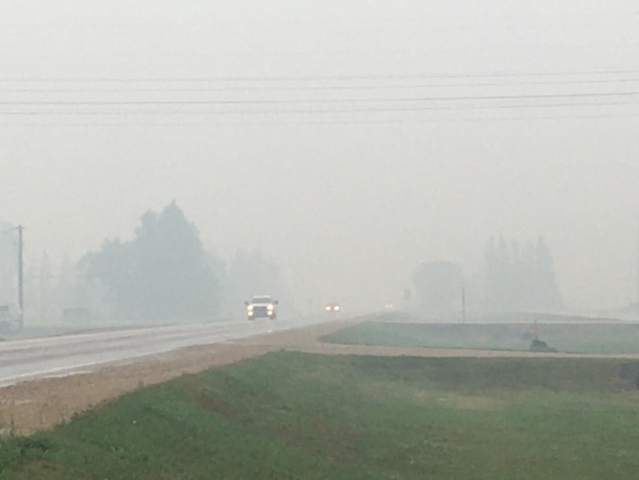CEO & President of the Lung Association of Manitoba, Neil Johnston, summarizes the risk of inhaling the wildfire smoke.
"Everybody who is exposed to this smoke over time can end up having some long-term consequences down the road. Inhaling the smoke from a wildfire over a short period, once or twice a year, those kinds of things (are okay.), But if it becomes more and more common, the complications start showing up. And those complications are due to the fact that some of the particles generated by the wildfires are really small. They are 2.5 microns (in size) which is really tiny, and they go deep into the lungs, and our bodies can't get rid of them very well."
Johnston carried on to touch on the long-term effects of inhaling these tiny particles.
"They can cause inflammation, and that inflammation can affect the lungs themselves, but they can go on to affect the heart, the circulatory systems and other organ systems over time. So it is something we need to be aware of, and we advise people, not only those at high risk, but everybody should take precautions when air quality deteriorates to avoid the potential complications down the road."
Some of the precautions you can take when air quality is poor are:
- Move to a cleaner air environment.
- Reduce the amount of air that is being brought into the office or home.
- Close all air intakes.
- Use air filters and replace them as per the manufactures instructions.
- Use room air purifiers.
Manitoba's Lung Association says those who face higher health risks during poor air quality include young children, the elderly, pregnant women, and people with heart or lung conditions. These individuals should avoid exposure to this smoke when possible.







